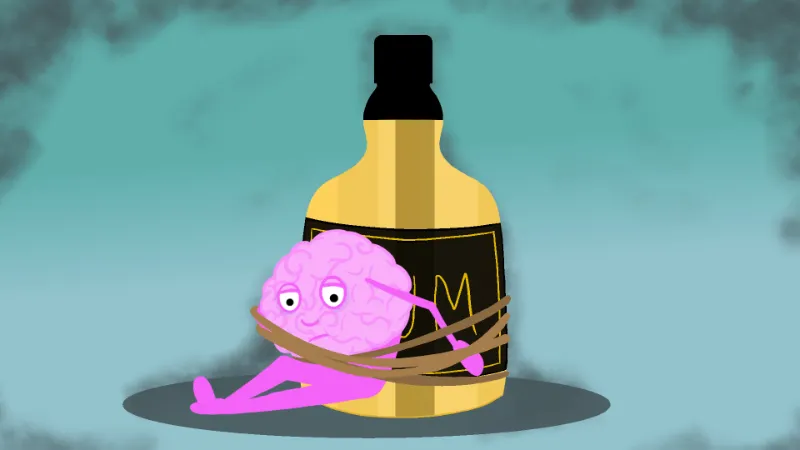Alcohol Addiction
Approaching the problem drinker: Part One
- ALCOHOL - THE INTERVIEWS
This programme reviews classification, clinical features and the psychological, social and physical aspects.
Twenty-five per cent of hospital admissions are Alcohol related. An average general practitioner list will contain 135 heavy drinkers, forty problem drinkers and seven alcohol dependent patients. Alcohol remains behind smoking but ahead of cannabis and other drugs as a public health issue.
There has been a move away from seeing the problem as “Alcoholism” and it is now better seen as a risk factor for ill-health.
In the past, there have been attempts at categorisation. For example, the Jellinek typology describes types of drinking behaviour but does not include other essential dimensions of the problem. The Alcohol Dependence Syndrome offers an alternative and includes the following features: Narrowing of drinking repertoire, Increased salience, Tolerance, Withdrawal symptoms, Relief drinking, Compulsion to drink and Rapid reinstatement of dependence (after a break).
The programme continues with some clinical examples. Try to identify the features which have led to them having a problem with alcohol and the reasons why they sought help.
Most patients have mixed feelings about their drinking, and the damage it is causing them and others. Many may not even recognise that alcohol is a problem and will present with depression, anxiety or marital difficulties. The reverse can also be true. For example, a bereaved person may turn to drink. Problems at work can be caused by or lead to excessive drinking.
As a good rule of thumb, one drink-driving offence may conceivably be “bad luck” and poor social judgement, but a history of two convictions is a consequence of an alcohol problem.

Follow the links below to continue the story.
Clinical Case Studies
Follow the Link below to find out about more case studies on the subject.
Finally:
- Ask each patient about alcohol consumption. It is a useful habit and you will get an idea about the so-called normal range, recognising how difficult it is to get an accurate drinking history , and that in itself is worth knowing. Can a week go by without them having a drink is a useful screening question, as long as it doesn’t disguise the massive binge session “enjoyed” every couple of weeks.
- Don’t give up, there is no such thing as a hopeless case. (Would you challenge that assertion and why – discuss.)
- There are few things more rewarding than seeing a patient getting to grips with their problem drinking. The benefits to the family and children are profound.
Detox
For More help and Information Visit the Detox Section Below:
© 2022 All Rights Reserved.
